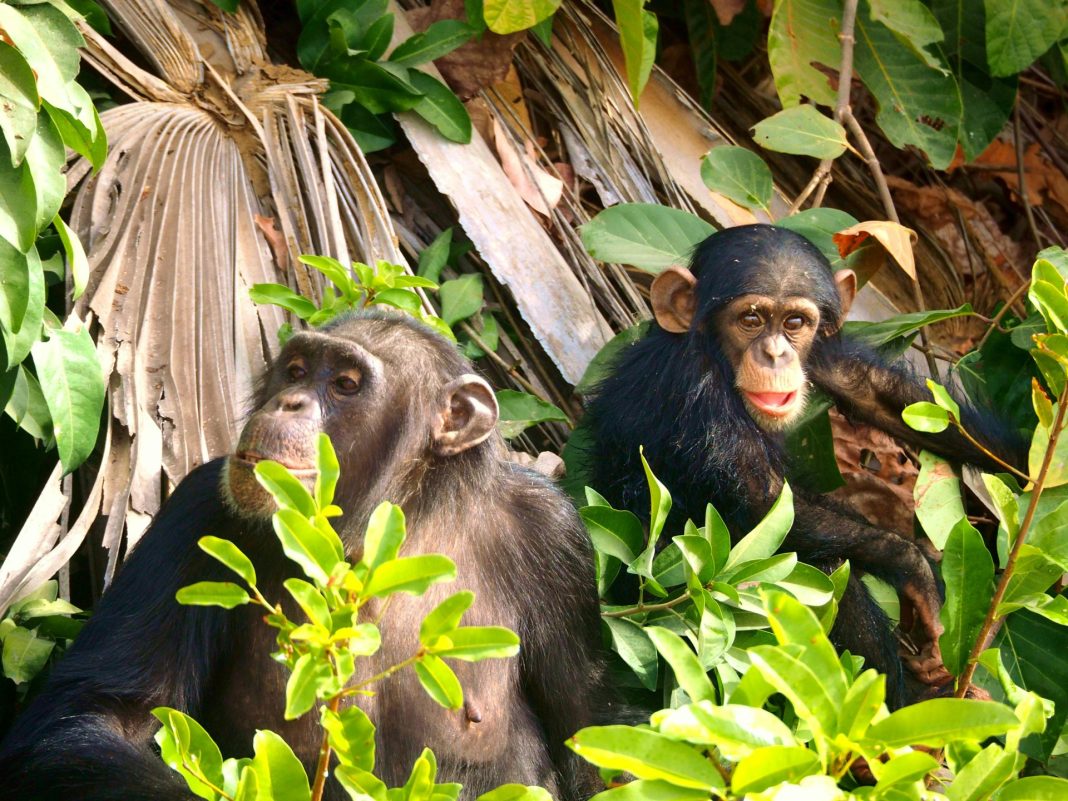Researchers led by a team from Oxford University have expanded on the understanding of human healthcare’s “cognitive and social foundations” through a study of chimpanzees in Uganda.
The new study, published in Frontiers in Ecology and Evolution, breaks new ground in demonstrating that medical care amongst chimpanzees, and particularly that which is not confined to close relatives, is more widespread than was originally believed.
Headed by Dr Elodie Freymann, of the University’s School of Anthropology and Museum Ethnography, the work documents 41 cases of care between the chimpanzees. These include 34 cases of self-care and seven cases of care for others (prosocial care) within the two observed communities of Sonso and Waibira in the Budongo Forest.
Speaking to the University, Dr Freymann observed that of the seven instances of prosocial care, “Care wasn’t preferentially given by, or provided to, one sex or age group. On four occasions, care was given to genetically unrelated individuals.”
Also noted was the complexity of the care provided. Several techniques, including chewing plants and applying them to the wound, leaf-dabbing, direct wound licking and finger licking followed by wound pressing, were observed. All chimpanzees showed a subsequent recovery from their injuries following the care.
Cases of hygiene and preventative care were similarly identified in the use of leaves to clean genitals after mating and the anus after defecation. Alongside this, many of the plants involved in these processes are understood to possess antibacterial properties that further improve the likelihood of success.
The variety of treatments reflects the causes of injuries identified by the researchers. Of the seven key occurrences of prosocial care, four were to treat unspecified wounds (possibly from fights or accidents), two involved the removal of snares and one involved helping another chimpanzee with hygiene. The team speculates that the treating of injuries may also be a reflection of the individual’s personal preferences – not just the type of wound.
However, healthcare behaviour in animals is not unique to chimpanzees, occurring in elephants, lions, and other species. In a few exceptional cases these behaviours are not limited to related individuals, a habit observed in the two closest living relatives of humans: chimpanzees and bonobo monkeys.
The paper serves to study this connection, its premise being that “[t]o understand the evolutionary origins of our own healthcare behaviors [sic] as well as to assess their potential uniqueness, it is crucial to investigate the self-care and prosocial healthcare behaviors [sic] of closely related species.”
These findings go beyond expanding the knowledge around the evolutionary origins of human healthcare, instead examining its psychological foundations. The evidence builds on a growing appreciation that chimpanzees have a capacity for empathy in their care for unrelated individuals. That empathy, as speculated by the authors, may provide the source for the unique trait of “altruism” in human beings today.


